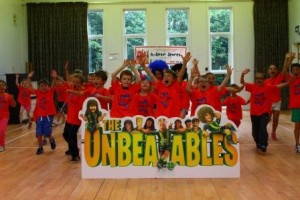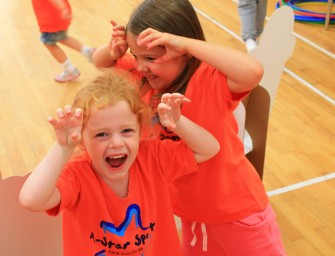Sport, the media and self-esteem in children
It’s often said that sports and physical activities can build self-esteem through positive experiences, particularly as ‘a popular and engaging setting for social interactions’ (Psychology Today*).
Self-esteem in children
For small children, there are some key themes that A-Star Sports coaches keep to the fore to ensure that building self-esteem is amongst the top priorities:
- coaching styles are positive at all times;
- activities are fun, accessible and inclusive;
- a fresh and enthusiastic approach is paramount for bringing a wide variety of activities to life, including considered developments for children to learn at their own pace;
- positive physical and social experiences – and the skills developed as a result – are transferable beyond the sporting environment;
- communication is always at an appropriate level and interactions are engaging and individual (coaches know, for example, children’s names, families and favourite games and can show a genuine interest in each child’s reflections and learning).
In his article ‘Do Sports and Other Physical Activities Build Self-Esteem? Early positive experiences of sports develop healthy, confident players’, Dr Richard Bailey rightly comments that ‘children are not mini-adults’. With communication in mind, the adjustments that we make as coaches of young children in this regard can make a huge difference in a child’s enjoyment of and longer term participation in sport and physical activity. It’s also one of the key factors in how the media can have a positive impact and support the notion of a lasting legacy from major sporting events.
Sport and the media
Over the last few years, so many of the coaches and parents we have encountered at A-Star Sports have done an amazing job in ‘translating’ the media’s reporting of big events like London 2012, the Winter Olympics, the Commonwealth Games and the Football World Cup. Children learn from the genuine emotions around these sporting events – from anticipation and excitement through to patience, perseverance and even disappointment.
The rollercoaster of emotions that contributes to self-esteem is also often captured in onscreen characters that reach out to children. This summer’s sporty animated film for children – The Unbeatables – does just that. In fact, like effective coaches, it targets its audiences very carefully and delivers important themes and messages on one level to children and on another to the grown-ups with them! Thus emphasising that children are indeed ‘not mini adults’ and that adults can see things very differently to children.
The right message
As adults we can see that ‘[involvement] in team sports has been positively associated with social acceptance and a sense of belonging, especially where such involvement is characterised by positive coaching, progressive skill development and peer support’ (Psychology Today*). To keep building self esteem, though, we need to remember – like the film makers – exactly who our target audience is and how to ‘translate’ the most valuable messages accordingly.



*Do Sports and Other Physical Activities Build Self-Esteem? Early positive experiences of sports develop healthy, confident players | Published on August 7, 2014 by Richard Bailey, Ph.D. in Smart Moves | http://www.psychologytoday.com/blog/smart-moves/201408/do-sports-and-other-physical-activities-build-self-esteem






Latest Testimonials
Mark was brilliant in running our 5 year olds class party! The kids loved the games and my daughter was so happy with all the […]
Mark ran a joint party for my 5 year old, her friend and their class mates (30 children). It was fantastic - all the […]
A massive thank you to Alistair for providing a high energy, fun, funny, engaging session with superhero theme for our recent party. 33 pre schoolers […]